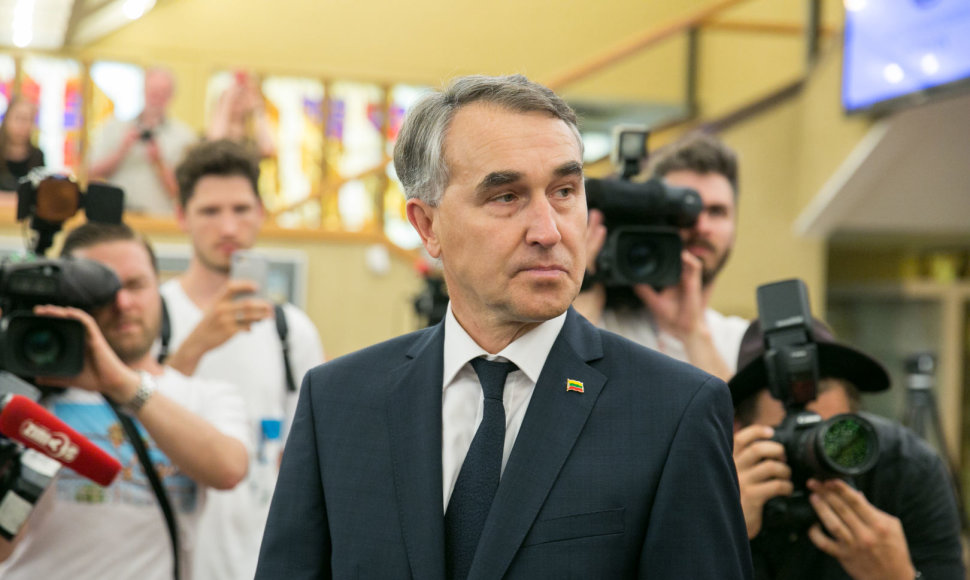Von der Leyen’s vision of Europe is ambitious: in her political agenda under the title “A Union that strives for more” she calls for a deeper EU integration and closer cooperation among EU states. As a convinced European, I can’t disagree with the idea of strong and unified EU which is capable not only to respond to global challenges but also to address its citizens’ concerns.
On this note, however, it must be acknowledged that proposal to nominate Von der Leyen as a candidate for this EU top job emerged as a result of a series of political compromises. Trustful sources say Von der Leyen’s candidacy was proposed by Donald Tusk, President of the European Council, in order to avoid the humiliation of Germany and Angela Merkel personally.
A long-time close ally of Chancellor Angela Merkel, Von der Leyen certainly has solid political experience even as a compromise candidate. Nevertheless, it is clear that by backing this proposal heads of EU members states to some extent ignored the will of millions of Europeans. Leading candidates of both European election winner parties – Christian Democrat Manfred Weber and socialist Frans Timmermans – were left behind. By wiping the idea of the Spitzenkandidat procedure - principle allowing voters a say in choosing ahead of EU executive - off the table, transparency of EU decision-making process was cast aside. Behind closed doors, the new European election took place.
The bitter yet justified disappointment by many voters makes clear that there is a need for more transparent regulation for democratically selecting the Commission president – and it will be one of Von der Leyen’s tasks. Most probably, EPP is among the most interested parties – its Spitzenkandidat Weber didn’t receive any of EU top positions, and the question whether he will become President of the European Parliament after 2,5 years is still open.
The weakest candidate to the other important EU position undoubtedly is Josep Borrell, a member of the Spanish Socialist Workers' Party and current Spain’s foreign minister, nominated as the next chief of EU foreign policy. His actions speak for themselves: Can a politician, who not only failed to condemn the actions of Vladimir Putin’s Russia and today’s China but also sympathized with the Venezuelan dictator N. Maduro, be trusted in the driver’s seat of the EU foreign policy?
If these facts are not sufficient alone to question Borrell’s suitability for this position - recently, Borrell stated that he wanted to refrain from travelling around the world. An EU foreign policy leader sticking to his cabinet chair? Well, sounds interesting. Therefore, to Josep Borrell I would rather suggest abstaining from signing up for duties (especially when they have importance to over 500 million Europeans) which he is not able or willing to fulfil.
As far as other EU leaders are concerned: Charles Michel, Belgian prime minister, has been chosen to replace Donald Tusk as European Council president. A right choice from my point of view. Michel has already proved how miraculously he can reach political compromises and solve difficult situations. No wonder his appointment received strong support from French President Emmanuel Macron and Benelux countries.
The European Central Bank will be led by Christine Lagarde, a former French Treasury Secretary and head of the International Monetary Fund. The first woman in this position ever, who is also considered to be a proponent of Macron’s policies (and most likely to strongly support him in the next French elections).
To conclude, the new EU leadership can be described with three F-words: the first F stands for Fantasy, as EU leaders quite surprisingly chose their compromise candidates. The second F is a symbol of Francophonization – from this region were appointed the majority of politicians. And the third F means Feminization, which is very welcomed. Both Von der Leyen and Lagarde certainly deserved to be nominated to these demanding EU positions.
There were many discussions on why CEE and Northern European countries weren’t visible in the race for top EU jobs discussed above. Does it mean a defeat for this part of Europe? To some extent, yes. Will Lithuania experience some negative results? Let’s wait and see. But today very worrying is the fact that current Lithuanian decision-makers haven’t even started a public and transparent discussion on the nomination of a European Commissioner. Unfortunately, it reveals a current national approach to European politics.












